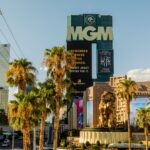The New England Patriots could find themselves defending a lawsuit by NFL fans miffed about their secret videotaping of signals from New York Jets coaches.
The NFL bans such videotaping and issued $750,000 in fines against the Patriots and coach Bill Belichick after they were caught taping signals at the Jets’ 2007 home opener in Giants Stadium.
Lawyer Carl Mayer, a Jets season ticket holder from Princeton, N.J., argued in a U.S. appeals court Wednesday that fans spent vast sums of money to see games that were essentially rigged. His suit, earlier dismissed by a lower court, seeks $185 million in damages for Jets fans alone.
Mayer, who asked the appeals court to revive the suit, said he hopes to learn the extent of the Patriots’ taping, dubbed Spygate, through discovery.
“The game will become more and more corrupt if there is no remedy,” said his lawyer, Bruce Afran. “The NFL will degenerate into the WWE (World Wrestling Entertainment).”
NFL lawyers insist the Patriots violated only league rules _ not any civil or criminal laws. They fear that disappointed fans will sue over myriad game day complaints if the case is upheld.
“It will become unmanageable,” lawyer Shepard Goldfein argued to the three-judge panel, which included a Pittsburgh Steelers season ticket holder and a judge who confessed to knowing little about NFL lingo.
U.S. District Judge Garrett Brown Jr. tossed Mayer’s suit last year, concluding that tickets entitle fans to see nothing more than the game that unfolds.
However, the 3rd Circuit Court of Appeals judges peppered lawyers about the issues for more than an hour Wednesday. Their ruling could hinge on whether they see the purchase of a Jets ticket as a contract between fans and the league and whether consumer protection laws apply.
The NFL argued that a ticket carries only the right to sit in a certain seat and see a game.
Belichick, the league lawyers said, defended the videotaping to NFL Commissioner Roger Goodell by saying he misunderstood the rules. Mayer challenged that assertion, alleging the Patriots turned off the light on the videocamera and used other sleuth tactics to avoid detection at the game, which they won 38-14.
Senior Judge Robert Cowen seemed perhaps most perturbed about the videotaping and noted Goodell handed down “a whopper” of a fine.
“Anyone who’s competed knows there’s a big difference in knowing what’s coming across the plate,” said Cowen, using a baseball analogy. “It’s a horrendous violation. No question about that.”
The suit alleges that the Patriots taped the Jets in their twice-yearly contests for seven years, and it seeks treble damages for Jets fans based on a rough average of $100 a ticket.
Goldfein, in questioning, said rabid NFL fans likely would buy tickets even if they knew the Patriots were stealing signals.
Other types of intelligence gathering are allowed in the NFL, from using binoculars to look for signals to debriefing new players and coaches about their last team’s playbooks, co-counsel Daniel Goldberg argued.
“Where the NFL decided to draw the line was at videotaping the sideline,” Goldberg said, adding the rules are subject to change each year.
The judges did not indicate when they would rule.
Judge Gene E.K. Pratter asked how the Patriots had fared during the seasons in question. The Patriots won the Super Bowl in 2002, 2004 and 2005 and reached the title game in 2008, while the Jets endured several seasons of mediocrity before making a surprising run to the AFC championship game last season.
“Prior to that (the start of the videotaping), their record was as woeful as the Jets,” Mayer replied. “After that, they were the best team in football.”
“For a while,” quipped Judge D. Michael Fisher, of Pittsburgh, whose Steelers added to their storied franchise history with championships in 2006 and 2009.
Was this article valuable?
Here are more articles you may enjoy.

 Dog-Related Injury Claim Payouts Hit $1.12B in 2023, Report Shows
Dog-Related Injury Claim Payouts Hit $1.12B in 2023, Report Shows  Johnson Controls Unit to Pay $750M to Settle ‘Forever Chemicals’ Lawsuit
Johnson Controls Unit to Pay $750M to Settle ‘Forever Chemicals’ Lawsuit  MGM Resorts Sues US FTC to Stop Investigation of Casino Hack
MGM Resorts Sues US FTC to Stop Investigation of Casino Hack  Property Restoration Industry: A Culture in Need of Repair?
Property Restoration Industry: A Culture in Need of Repair? 